COVID-19: Urgent health alert after COVID breach at Brisbane Airport
A major Australian international airport is now a “venue of concern” after a passenger from PNG mingled with “green zone” travellers bound for NZ.
Coronavirus
Don't miss out on the headlines from Coronavirus. Followed categories will be added to My News.
Brisbane International Airport is now a “venue of concern” after a passenger, who had travelled from Papua New Guinea and mingled with passengers bound for New Zealand, tested positive to COVID-19.
Almost 400 passengers who flew to New Zealand from Brisbane have potentially been exposed to the virus.
The infected man travelled from a “red zone” country but was inadvertently allowed to cross into the “green zone” area at Brisbane Airport where passengers were waiting to travel to New Zealand.
The infected man and a companion unintentionally spent two hours in the green zone on Thursday morning before they were escorted to their rightful area.
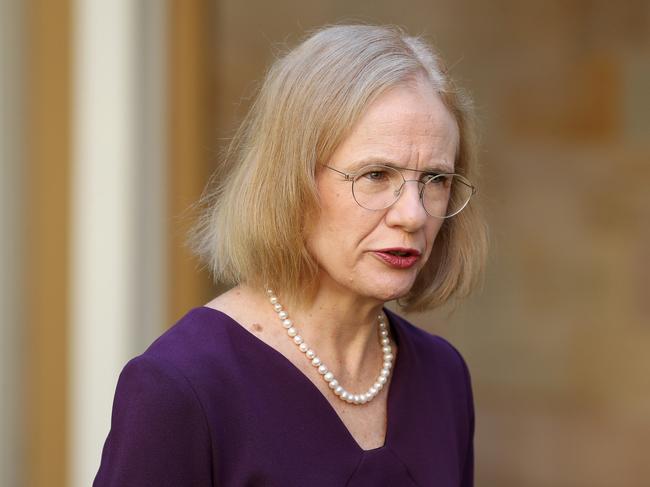
However, in that period, 390 passengers boarded three flights bound for New Zealand.
Chief health officer Jeannette Young has declared the international terminal a venue of concern.
“Anyone who was in the terminal between 9.45am and midday on Thursday, 29 April 2021, should monitor their symptoms and get tested immediately if they feel unwell,” she said.
“Once the mistake was identified, the two passengers were tested for COVID-19.
“One man’s initial test was equivocal, meaning it was neither positive nor negative. Further testing revealed he is positive. The other passenger is negative.”
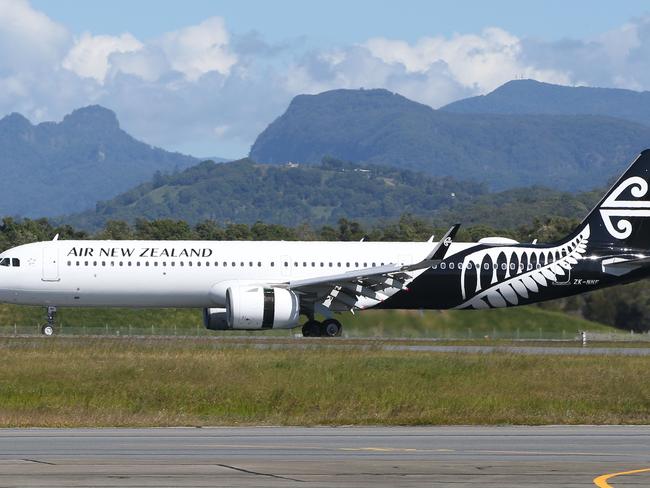
Dr Young said New Zealand authorities had been alerted to the error and the risk of Queenslanders becoming infected was low.
The three flights affected are Air New Zealand NZ202 from Brisbane to Christchurch, Air New Zealand NZ146 from Brisbane to Auckland, and Qantas QF135 from Brisbane to Christchurch.
“Staff who came into contact with this case have been placed into quarantine,” she said.
“We have advised the NZ Ministry of Health of the latest results, and they are taking their own protection measures.”
Premier Annastacia Palaszczuk took to social media on Friday morning to confirm one of the passengers had tested positive to COVID-19.
The two passengers who arrived on Thursday morning into the red zone were let into the area designated for New Zealand arrivals due to “human error”, Brisbane Airport Corporation confirmed.
The pair dined at Hudson Cafe for about 90 minutes before using the toilets and visiting a second retail outlet.
They were eventually found by airport staff and returned to the red zone. Three “green” flights departed within the two-hour period to New Zealand, potentially exposing 390 passengers to COVID-19.
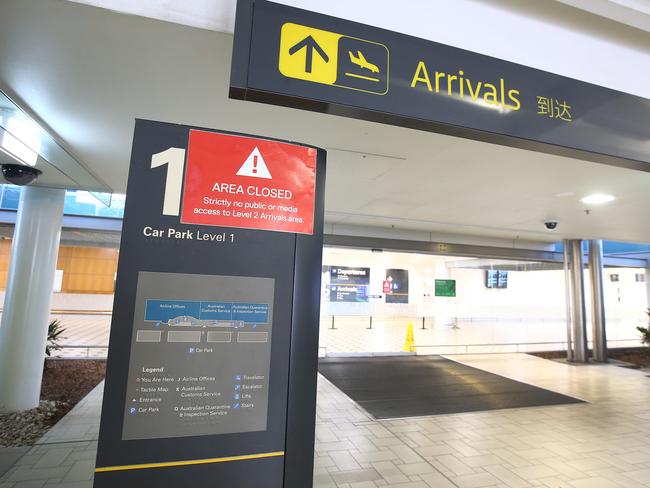
The pair had returned negative results before leaving Port Moresby, but a second test on Thursday returned a “weak positive” for one of the travellers.
Dr Young earlier said the two passengers posed a low risk to others.
“While at the airport, they wore masks and socially distanced and neither has reported symptoms,” she said.
“They were in the wrong zone through no fault of their own, and we appreciate their patience and co-operation while we rule them out as cases.
“We’re also grateful for the prompt action by Brisbane Airport staff once the mistake was identified.”
On Thursday night the New Zealand Ministry of Health urged passengers who arrived on flights NZ202 (Brisbane to Christchurch), NZ146 (Brisbane to Auckland) and QF135 (Brisbane to Christchurch) to monitor their health for the next two weeks.
Queensland recorded two cases in hotel quarantine on Friday.
TWO MEN DEAD AFTER COVID SHOT
Two men have died just days after receiving the coronavirus vaccine, raising questions again over its safety.
A “fit and healthy” 55-year-old man from Tamworth died in hospital last week about a week after rolling up his sleeve.
There has been no confirmed link between the vaccine and his death but health authorities are racing to determine how he died.
According to The Northern Daily Leader, the man’s family described him as “fit and healthy”. He died in hospital on April 21, eight days after getting jabbed.
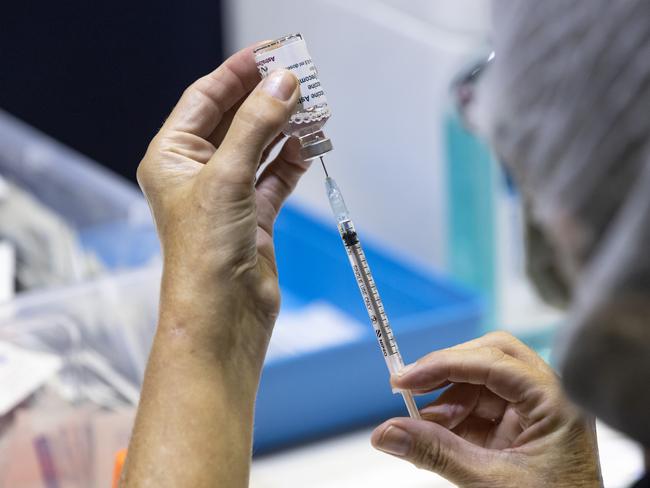
A family member told the local paper staff at the hospital said the man had suffered a massive blood clot in his lungs. He had reportedly collapsed while running errands.
The Therapeutic Goods Administration (TGA) said it was aware of the case but no link between his death and the vaccine had yet been established.
It is believed he did not have any pre-existing heart or lung conditions and it is unclear what brand of vaccine he was given.
“All reports to the TGA of death following vaccination are reviewed to assess the likelihood that the vaccine contributed to the event or medical condition that led to a fatal outcome,” the TGA said in a statement.
Meanwhile, a 71-year-old Sydney man has also died after getting the AstraZeneca COVID-19 vaccine.
According to 7 News, the man had several underlying health conditions and there’s no evidence his death is linked to the vaccine at this stage.
Health officials will now examine the circumstances around his death before passing on findings to the TGA.
NSW Health and the TGA have been contacted for comment.
264 VICTORIANS ORDERED TO GET TESTED
More than 200 Victorians have been told to urgently get tested for coronavirus, as the state reports a sudden and unexpected surge of viral fragments in wastewater.
Authorities have contacted 246 people living in Melbourne’s western and northwestern suburbs, who have been urged to get tested as a precaution.
Dozens of new suburbs in the city were listed as at-risk tonight, adding to the growing list of suburbs where COVID-19 fragments have been found in recent days.
Although the department initially said the detection of fragments was likely due to viral shedding after the infectious period, stronger action was necessary because a known positive COVID-19 case had been in the community.
“This additional action is being taken due to the strength of the wastewater detection and because a known positive COVID-19 case, from flight QF778, has been in Victoria in the past 14 days,” Victorian chief health officer Brett Sutton said.
“In response to strong and unexpected COVID-19 fragment wastewater detections reported yesterday in Melbourne’s western and northwestern suburbs, 246 people who were in those areas have been contacted and are being asked to be tested as a precaution.”
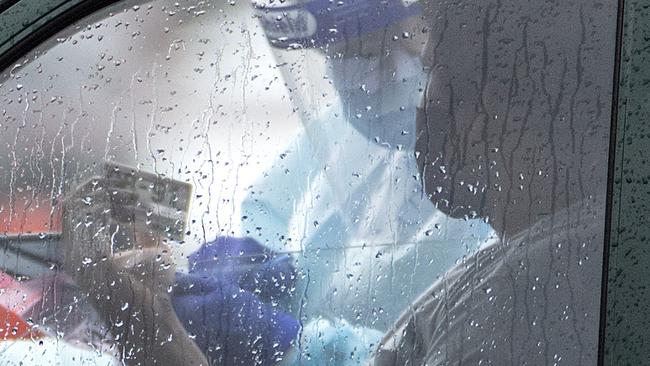
Those being tested include four primary close contacts of an infected man who flew from Perth to Victoria on April 21, as well as 242 recently returned red and orange zone travel permit holders.
All of those primary close contacts had recently been tested and all returned negative results, but the department has asked them to get tested again out of an abundance of caution.
COVID-19 fragments have been detected in four additional catchments in Melbourne’s western, northern, northwestern, and outer eastern suburbs, and there have been repeat detections in Benalla.
These are in addition to viral fragment detections reported over recent days in other catchments the eastern, western, northwestern and outer northern suburbs.
“It is most likely that these new detections are due to a person or persons continuing to shed the virus after the infection period however, it could also be due to a person living in or travelling through the area in the early active infectious phase,” Professor Sutton said.
“The wastewater testing program is designed as an early warning system to support our ongoing efforts in continuing to protect the COVIDSafe environment we have achieved and therefore a cautious approach is always taken when these detections are found.”
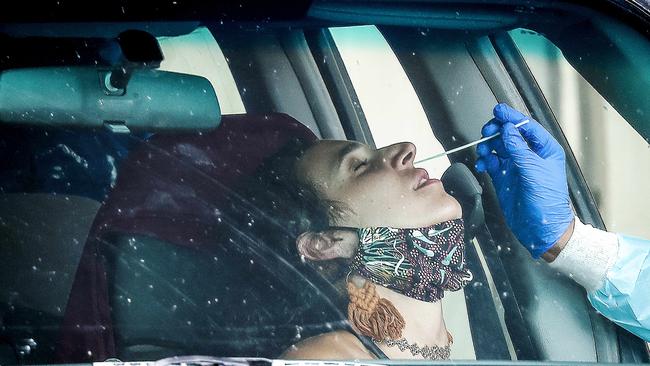
NOVAVAX TO ARRIVE IN SEPTEMBER
Australia is set to receive the Novavax vaccine by September.
The Therapeutic Goods Administration has yet to approve the US vaccine, but Health Secretary Brendan Murphy said it would arrive in Australia by the third quarter of the year.
“We might see some by Quarter 3, which would be my recollection, it’s September, but it could even be August. All (Novavax are) saying is that they’re confident of giving us some,” he said.
It comes as Australia’s chief medical officer Paul Kelly said there will be no foreseeable change to the existing quarantine program despite a risk of infection leaking into the community.
Prof Kelly’s comments came after a heated exchange with Western Australian Greens MP Rachel Siewert, who accused the federal government of inadequate hotel quarantine protection strategies.
In Tuesday night’s Senate Select Committee hearing into the government’s response to the pandemic, Ms Siewert asked why federal hotel transmission guidelines hadn’t been overhauled.
Chief Medical Officer Paul Kelly said the measures had been extensively reviewed, and numerous forms of protection worked like a “Swiss cheese model” in stopping the virus from spreading.
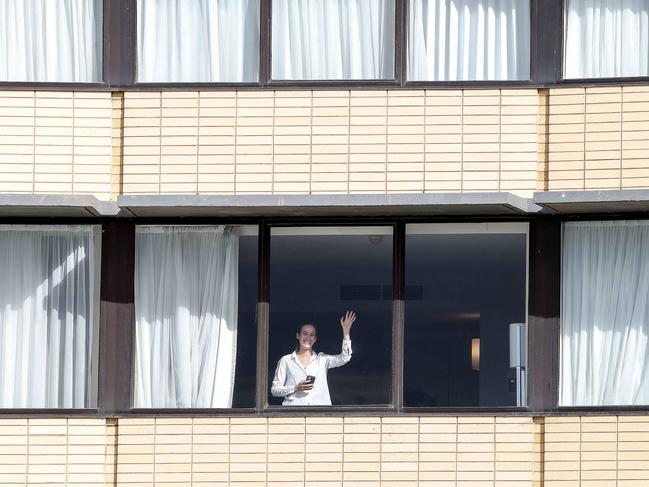
“There can be holes in each of the protections, but as long as they don’t line up, you’ll be fine,” Professor Kelly said.
“There’s a whole range of things you can do to protect people in hotel quarantine, including arrival numbers, pre-departure testing, good hotel infrastructure, ventilation, post-arrival testing, red and green zones, training and education for staff, people who do continuous auditing, hand hygiene and finally masks, as well as our new weapon which is the use of vaccination.
Prof Kelly continued: “So that’s the sort of model we’re looking at – ways you can protect people and decrease the chance of transmission in quarantine and transmission into the community.”
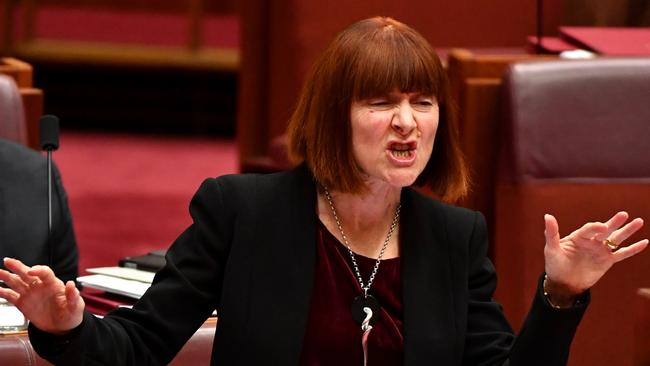
Department of Health secretary Brendan Murphy reiterated there were broad guidelines that were “adequate” in managing the virus in hotel quarantine.
“Well it doesn’t seem very adequate to me given that we’ve just come out of lockdown here in WA,” Ms Siewert said.
“I’m sorry, we’ve had it happen in multiple states – they don’t seem to be adequate.”
Professor Kelly said there would always be infections in hotel quarantine.
“We expect people who come into quarantine to have an infection and we try our best to keep it out, but there will always be infection,” he said.
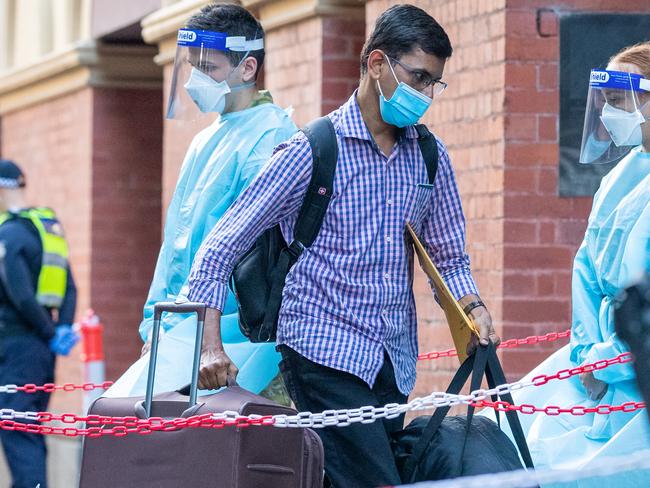
The comments come as the federal government faces mounting pressure to assist the states in managing quarantine, following outbreaks that leaked out of hotels in NSW, Victoria and most recently WA.
Both Victoria and NSW have requested the commonwealth come up with an alternative form of quarantine, claiming hotels in the city weren’t effective in controlling the virus.
Despite calls for the government to establish more open air Howard Springs-type facilities, Prime Minister Scott Morrison has publicly backed the current system.
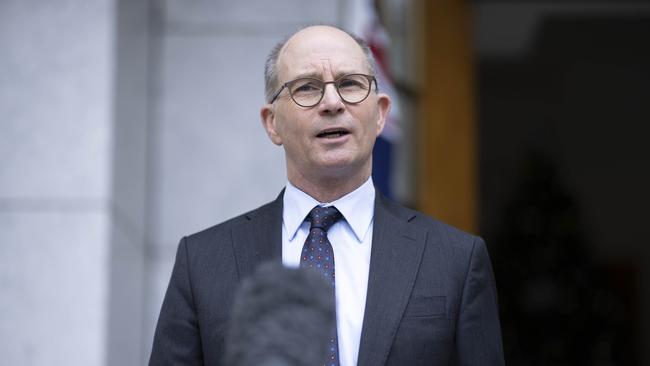
Professor Kelly told the Senate hearing the government currently had “no plans” to look at alternative facilities.
“Hotel quarantine was one of the key decisions made early in the pandemic to protect Australians and it’s been successful,” he said.
“Of course there has been some incursions and they’ve been widely publicised, but in general terms it’s been very safe. And we’ve continued to learn how to make it more successful and safe as we’ve gone on.”
– with Emily Cosenza, Anthony Piovesan, Anton Nilsson, Ellen Ransley and Darren Cartwright
Originally published as COVID-19: Urgent health alert after COVID breach at Brisbane Airport




